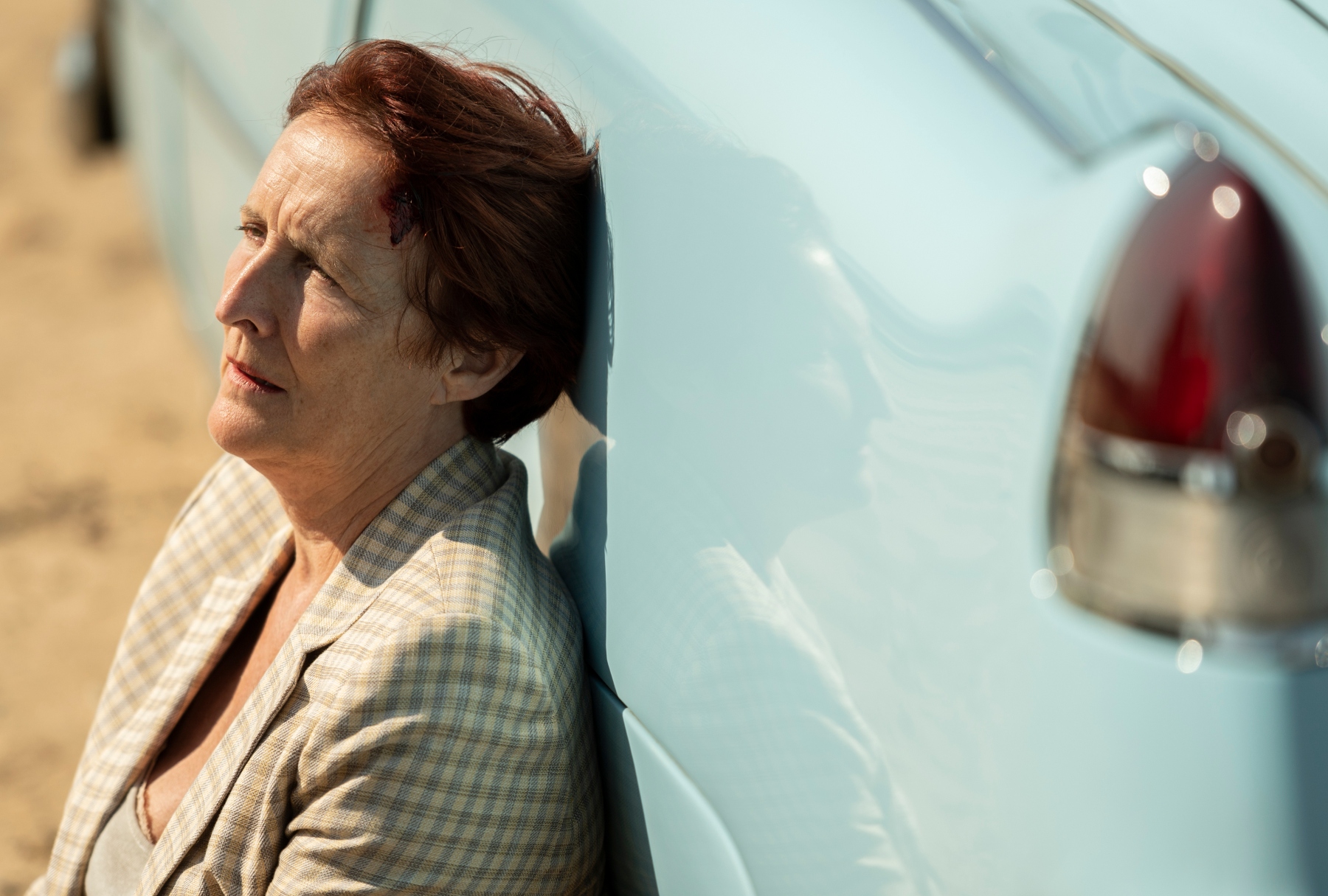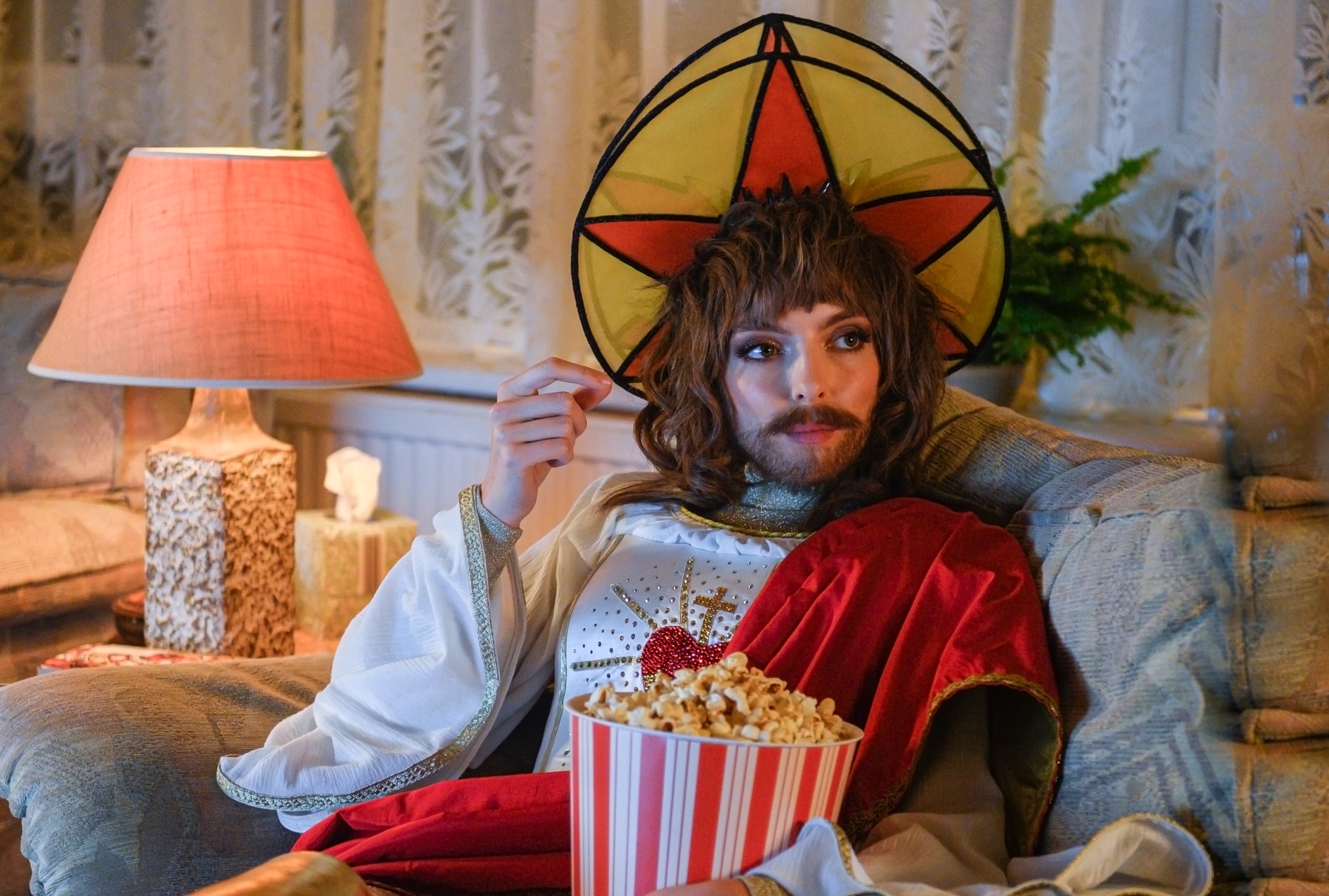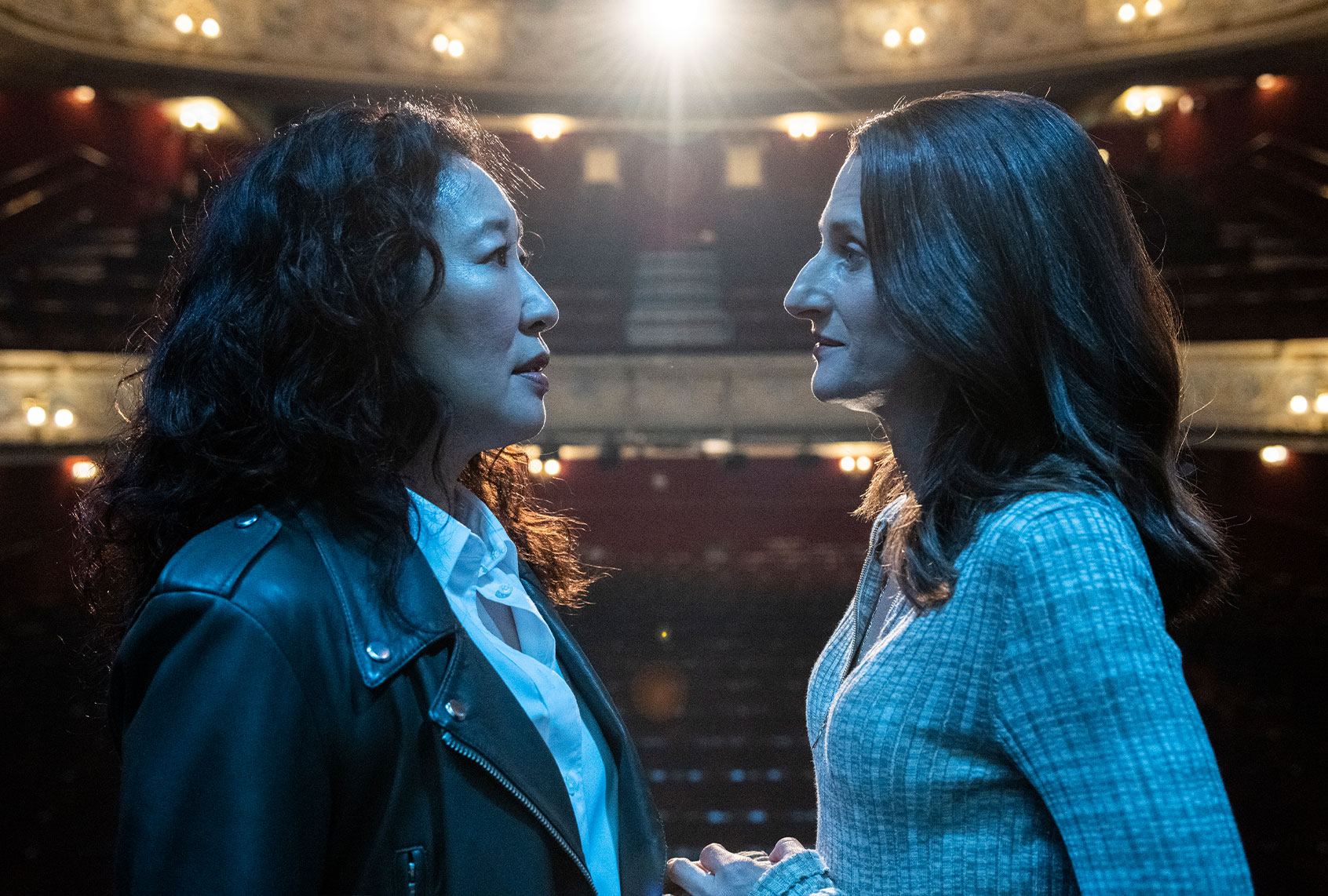“Killing Eve” operates differently.
The BBC America show spins the story of an assassin who may have a heart of gold — or at least, a heart and some regrets and questions — and features two women in a cat and mouse game that may have romance at the end (or middle).
But “Killing Eve” is also different in the way it works behind the scenes. Every season of the show has featured different showrunners (called head writers in the UK), controlling the central vision of the show. While Phoebe Waller-Bridge (“Fleabag”) created the series in its first season, a new person has taken over each subsequent season. It’s important to note that all of the “Killing Eve” showrunners have been women — still a rarity in television where, in the 2019-2020 season, women only accounted for 28% of all showrunners according to the “Boxed In: Women on Screen and Behind the Scenes in Television” report from San Diego State University.
Now in its fourth and final season, the “Killing Eve” baton has been passed to Laura Neal (“Sex Education“).
This season started off with the characters in very different places, including Villanelle ensconced in a religious community, a deliberate decision to disrupt characters’ lives and begin in the middle, according to Neal, who said she wouldn’t mind spending time with Villanelle in real life — if the killer was behind a protective wall of plexiglass.
As the season deepens, so do the storylines for multiple characters. Some, like would-be assassin Pam (Anjana Vasan) are beginning new roles. Some, like Carolyn (Fiona Shaw) are trying to reconcile with the past. And some are getting back to what they’re good at: killing.
Related: Manic pixie death girl: “Killing Eve” and the adorable assassin
Salon spoke to Neal about what fans can expect as the show draws to a close, from Villanelle and Eve’s relationship, new faces this season — one of whom gets kiss and a bubble bath with Eve — to that incredible vision of Villanelle in Jesus drag (which we are predicting will be a hot Halloween costume this year).
This interview has been lightly edited for clarity and condensed.
You took over being the head of the show, whereas I know you had been in the writers’ room before, but now you’re in charge of the finale. How has that experience been?
Really exciting. I loved working on season 3 and I loved the show before I was a writer on season 3 as well, like Phoebe’s work, Emerald [Fennell]’s work, Suzanne [Heathcotte]’s work. It feels like a real privilege to be the last in line of all those amazing women.
Obviously, it’s a huge pressure as well because you want to make sure that the ending to this show is as glorious as the show itself has been and that we bring it to a close in a way that feels satisfying for people.
 Fiona Shaw as Carolyn in “Killing Eve” (Anika Molnar/BBC America)
Fiona Shaw as Carolyn in “Killing Eve” (Anika Molnar/BBC America)
The show seems so much to be at first, the journey of two women, Villanelle and Eve. But then it’s really the journey of at least three women, including Carolyn. This season, so far, we seem to be seeing the aftermath of her fall, working without resources against The Twelve now. She’s not in a great place. We’ve seen Eve maybe at her lowest and maybe now we’re seeing Carolyn there. Could you talk about that?
I think you’re right. I think in earlier seasons, the focus is very much on Eve and Villanelle and as we’ve progressed across the four seasons, we’ve kind of broadened our focus. Definitely Carolyn and also Konstantin feel more like protagonists than they did in season 1. I love writing for Carolyn, I find her story really interesting. We were all really curious in the writers’ room about what would happen if we stripped this character who was so much about status and hierarchy and we stripped her status and her hierarchy from her. And also, we’re so used to seeing Carolyn in her element. We’re so used to seeing her 10 steps ahead of everybody else. We’re used to seeing her sort of lord it over her environment. It was exciting for us to take her out of all of that.
I think Carolyn is somebody who loves the game of spying and that fuels her. That’s her sort of core identity. That’s the thing that drives her. It was interesting to me: What happens if you take that part of her identity away?
That leads into my next question, which is this season doesn’t start directly after the last one. It moves forward in time and all the characters, including her, are in much different situations in their life. Could you talk about why you wanted to do that, to jump forward in time?
I was really excited by the idea of hitting the ground running. I think looking back at the process, a lot of that was driven by a desire to see Villanelle in the community that we already find her in and it felt like in order for her to be in this place and to have established herself in the way that she’s been established, we needed a little bit of a gap between the end of season 3 and the start of season 4. It just excited me to see all of the characters in new places, so that as an audience member, you’re slightly having to play catch up a little bit at the start of episode 1. The question is: “Okay, how have these characters ended up in this new place?” And then for a writer, it’s really freeing to be able to find them in slightly different head spaces and to be able to run with that.
It really is like starting anew, each new season with a new head writer, but I think especially this one, it’s a whole new story for these people that we love, which is exciting. So far this season, Villanelle seems to want to change, maybe for herself, maybe for someone else, which is hard for her because although she was definitely trained to be a certain way, there also seem to be violent tendencies that are innate in her, that she can’t help. It’s just the way she is. Do you think that characters in the show, especially Villanelle, can change or do you think they just are who they are?
I think the question of can these people change was the central one of the season. We spoke a lot about that question in regard to all the different characters, actually, even our new characters that we introduced. Obviously for Villanelle, it’s kind of like the most obvious question. Can this murderous killer be anyone else other than who she is?
Do I think they can change? Yeah, I do think they can change. I think the characters can change.
I think the question for me that’s interesting is: How much and do they actually want to? Deep down, does Villanelle want to be a good person? Does she want to be maybe the nihilistic blinkered person that she is at the start of season 1? Or, are these people just trying on a different version of themselves for size in a way that they hope will make them feel or come closer to who they actually are on the inside?
What was the inspiration for Villanelle this season?
There wasn’t really one inspiration. There were a lot of questions about Villanelle and a lot desire from Jodie [Comer] and from the writers to deepen our understanding of her. She’s such a fun character to watch and to write and we’d scratched under the surface of her, Suzanne had scratched under the surface of her in season 3 — but it felt like there was a lot more to uncover about her. So, I think that was just a real desire because it’s the final season to explore the questions that we all had about her.
It’s sad that it’s the final season — although I know all stories have to come to an end and it’s good that you can come to an end that you plan — but I think Villanelle is someone we could see forever. She’s so layered and she’s so different.
Totally. I’ll think about her as a character forever. I hope she really will stay in people’s minds because for me, she’s such an inspirational character, which sounds crazy to say about someone who brings so much death and destruction. But there’s something about Villanelle, which I think encompasses the appeal of “Killing Eve,” which is she’s a woman who doesn’t hold herself up to society’s expectations. She behaves exactly as she wants with no shame and no fear and that for me is really empowering actually.
She does bring a lot of light. I mean, she’s very lively, even though she’s a killer, she’s very alive. She brings a lot of energy and I think she does inspire people, especially women.
I think she’s also a character — and I don’t think we often think of her this way — but I think she’s a character who craves connection. She’s actually a lover of human connections, even if that’s in the moment of killing someone, that’s what she’s seeking. A kind of a thread that ties her to somebody else, even if it’s in the moment of death.
 Jodie Comer as Jesus-Villanelle in “Killing Eve” (BBC America)If that’s all she has, that’s all she has, and she’ll cling to that. I really like that. I wanted to ask you about the Jesus drag hallucination she has, which is so incredible. It seems for all the characters, clothes are important, but for Villanelle especially, it seems like such a part of who she is: how she dresses and that kind of clues the audience into things that are happening in her.
Jodie Comer as Jesus-Villanelle in “Killing Eve” (BBC America)If that’s all she has, that’s all she has, and she’ll cling to that. I really like that. I wanted to ask you about the Jesus drag hallucination she has, which is so incredible. It seems for all the characters, clothes are important, but for Villanelle especially, it seems like such a part of who she is: how she dresses and that kind of clues the audience into things that are happening in her.
The vision was an early idea that we had. Probably one of the earliest ones in the writers’ room. It actually came from us thinking here’s Villanelle in an environment that seemed totally at odds to who she is as a character. The more we spoke about it, the more we realized that environment actually speaks to a lot we already know about her, like we know that Villanelle loves theater. She loves stories and she loves things that feel heightened, things that feel a little bit camp. So, it didn’t feel, for us, like a mad thing for her when she’s absolutely involved in this sort of world where iconography is really important, where she is steeped in it all.
If she was to imagine a kind of guiding figure, it would be a religious icon. If Villanelle imagined a religious icon, of course, Villanelle being self-centered like she is and having a god complex already, she would imagine herself as that figure. That felt really fun to us. It was also just a way to inject a bit of surrealism, a bit of surreal humor, into the show, which I was really keen to do in that episode. Obviously, the vision’s costume is incredible and that’s all down to our brilliant costume designer, Sam Perry, and her team. That was her.
I feel there may be a lot of Halloween costumes this year that are Villanelle as Jesus. That would win the costume contest.
Maybe I’ll try and get my hands on the costume so I can have the original one.
Oh, you have to.
I think the costumes in general this season have been really interesting because you’re right, part of the reason I loved “Killing Eve” to begin with was like, what costume is Villanelle going to be wearing? What’s the fashion going to be?
What’s she going to show up as next?
What I find really interesting in this season is that we’ve given some of that to Eve as well. We’re seeing Eve in different costumes that we would never have seen Eve in before. I think that speaks to Eve embracing a more Villanelle side of herself. So that was interesting to me to take some of the elements of a costume that we love seeing Villanelle in and having Eve share in them.
Also, we talked about Carolyn at the beginning too, but her station has changed and so have her clothes. She always looks so put together, but now she’s drifting too. So, what is the experience writing a pair like Villanelle and Eve that so many people love and so many viewers want to end up together, or have strong ideas about. What’s that like as a writer?
Really exciting, because I feel like it’s one of the most complex relationships that I’ve ever been lucky enough to write. What I love about their relationship is that everybody has a different idea of what exactly it is.
Want a daily wrap-up of all the news and commentary Salon has to offer? Subscribe to our morning newsletter, Crash Course.
And what exactly is the pull between these two women? I think you can’t deny the pull. For me, there’s a kind of cosmic force that’s driving them together, but what I love is that everyone has a slightly different take on what the nature of that pull is. So, it was really exciting to be able to explore that a little bit more in this season. In terms of how their relationship progresses over the course of the season, you can never please everyone. Everyone has such a strong opinion. That’s going to be impossible to serve everyone. I think what we try to do in the writing room is focus on what feels true to those two women at this moment in their journeys. We let that question guide us in terms of how their relationship progresses.
My last question for you is what can you tell us that we can expect from this final season? What will we be left with as this story finally comes to a close?
We always wanted to make this last season feel triumphant. We wanted people to watch it and feel like we had really examined some of the questions that remain about relationships in the show and even about plot stuff, like The Twelve. Who are The Twelve and what do they really want? So, we wanted people to feel like we’d dive deep on those questions.
Emotionally, what we wanted was for people to enjoy this relationship between these two women, as much as I’ve enjoyed writing it, and we’ve all enjoyed writing it. Then to come out with a feeling of, “oh, that was glorious.” That’s the word I keep using. It should feel glorious at the end.
That’s a good thing to look forward to. I’m definitely going to miss these characters when it’s over. I know you probably wouldn’t want to hang out with Villanelle in real life, but …
I would at a distance.
More stories like this:

